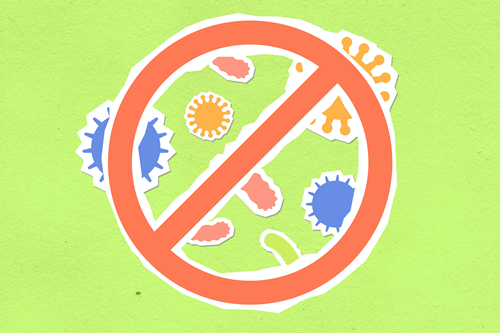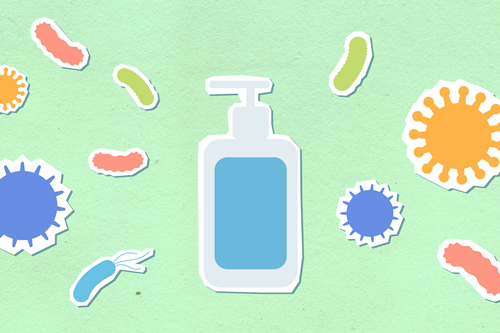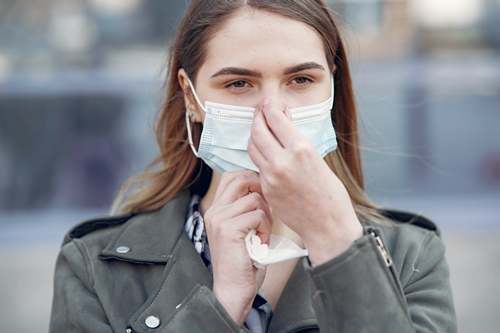
A Little Change for The Diapers, A Big Change for The World | Eco Boom Baby Bamboo Diapers and Wipes Manufacturer
A Little Change for The Diapers, A Big Change for The World | Eco Boom Baby Bamboo Diapers and Wipes Manufacturer

Avoiding colds and flu entirely isn’t always possible, and cases of both viruses are reported all year round...
During cold and flu season, rates of cold and the flu are much higher – so you’re more likely to get sick during this period.
The good news is that there are many small changes you can make to aid cold and flu prevention. From getting an annual flu vaccination and boosting your everyday hygiene habits to looking after your diet, fitness and overall lifestyle, you can stay one step ahead of colds and the flu.
How Colds and Flu Spread
Inhaling germs
A cold or flu virus can be spread when you inhale air droplets produced when an infected person coughs or sneezes.



Direct human contact
Everyday forms of close contact with someone who has the cold or flu – such as kissing, hugging or shaking hands – can also put you at risk of catching their virus.
Touching surfaces
Viruses can also spread if you touch a contaminated surface and then touch your mouth, nose or eyes. Unfortunately, viral bacteria can remain active on most surfaces for several hours after they’ve been handled by a someone who is sick. This means that everyday objects such as door handles, light switches or railings on public transport could, in theory, pass a virus on to you.



How to Prevent Cold and Flu
Wash your hands often
To remove potential pathogens or viruses on your hands, wash them with soap for a full 20 seconds and make sure you wash under your fingernails and between your fingers, too. If no soap or water is available, use an alcohol-based hand sanitizer and rub it in thoroughly.
Avoid touching your face
Viruses can enter your body through the areas around your nose, mouth, and eyes. It is important to avoid touching your face if you are exposed to a person with a cold, especially if you have not washed your hands.
Don't smoke
Smoking tobacco products irritates and damages the throat and lungs, and can worsen cold symptoms – which already include a sore throat and cough. Even secondhand smoke can cause irritation. A recent study also found the anti-viral response in smokers may become suppressed, making them less able to fight off infection.



Use disposable items if a family member is infected
Use your own disposable plates, cups, and utensils and discard them after use if you have a cold. This is especially helpful if there are children in the household, who may attempt to take food off others' plates, or drink from others' cups.
Keep household surfaces clean
Clean all household surfaces frequently to keep them relatively germ-free. Viruses can live on surfaces for several hours after being touched by an infected person. Pay attention to the areas you touch most often and use soap and water, bleach, or disinfectant cleaners to wipe off doorknobs, keyboards, phones, remote controls, desks, toys, countertops, faucet handles, and drawer pulls.
Healthy Eating
Your immune system depends on a wide variety of antioxidants, vitamins and other nutrients, so it’s important to look after your diet. Eat a wide variety of fruits and vegetables, nuts, proteins and carbohydrates to ensure you’re getting all the nutrients you need. This will help prevent colds and flu by supporting your immune system as much as possible.
Keep hydrated and rest
Cold and flu prevention tips don’t come much better than this – drinks lots of fluids and rest as much as possible. During sleep, your body works to support and maintain your physical health – restoring, rejuvenating and repairing itself. You may be more prone to illness if you’re tired or overworked, so be sure to get the recommended 7-9 hours of sleep per night for adults. It’s also essential that you keep your fluids up. Be sure to drink water consistently throughout the day.
Control stress
When we experience stress we release a hormone called cortisol, which has anti-inflammatory properties. Chronic stress causes an over-production of this hormone, which in turn causes the immune system to become resistant to it. Studies have shown that when a chronically stressed person is exposed to the common cold virus, which causes inflammation, their bodies are less able to fight it because their natural anti-inflammatory response does not work as well as it should.
Copyright © 2019 XIAMEN MK HEALTH CARE PRODUCT CO., LTD . | All Rights Reserved
We are here to help you! If you close the chatbox, you will automatically receive a response from us via email. Please be sure to leave your contact details so that we can better assist